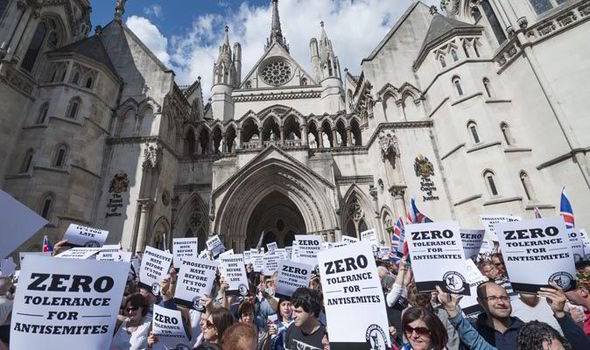“… the tale he had to tell could not be one of a final victory. It could be only the record of what had to be done, and what assuredly would have to be done again in the never-ending fight against terror and its relentless onslaughts, despite their personal afflictions, by all who, while unable to be saints but refusing to bow down to pestilences, strive their utmost to be healers.” – Albert Camus, The Plague
Harriet Sherwood’s latest report, ‘Sinai: a descent towards chaos’, represents a classic example of the political orientation which refuses to hold individuals responsible for the violence and terror they willfully commit.
Her tale, about increasing lawlessness and terror in the (post-Mubarak era) Sinai by, among other groups, Bedouin factions adhering to Salafi jihadist doctrines, falls squarely within her broader narrative about the “oppressed” Israeli Bedouin. (See our posts on her reports here and here.)
Sherwood begins, thus:
“The Sinai has long been an area beyond the writ of Cairo. The vast desert peninsula is inhabited largely by Bedouin tribes, who for decades have been marginalised, neglected and impoverished.”
Sherwood later notes the following:
“Israel has urged the Egyptian government to take firm action against Bedouin militants and smugglers, and has enlisted the support of the US in its efforts. During a visit to Cairo last month, the US secretary of state, Hillary Clinton, warned that Sinai could become an “operational base” for jihadists if security was not stepped up.”
Indeed, the Sinai Bedouin, who now number over 300,000, have been, since Mubarak’s fall, transforming the area into a semi-autonomous region with their own illegal economic enterprises.
The Bedouin have, for instance, guided massive numbers of African immigrants into Israel, mainly Sudanese and Eritrean Muslims, often subjecting the helpless migrants to torture and rape.
During the past two years, some Bedouins have also expanded this venture into harvesting human organs of some migrants to be sold abroad.
Later, Sherwood writes:
The region has suffered from chronic under-investment in education, health and transport. Its inhabitants are among the poorest in Egypt.
In the south, massive investment since the 1990s in upscale resorts in the former Bedouin fishing village of Sharm el-Sheikh, and a programme to create a “Red Sea Riviera” along the coast, has further alienated the Bedouin. They are routinely excluded from employment in swanky resorts, and consequent resentment may have contributed to a spate of tourist kidnappings and armed robberies in the past year. [emphasis added]
However, whatever the economic disparities which Bedouin in the Sinai may indeed face, assigning their moral drift – towards fundamentalist Islamist ideology, terrorism, human trafficking, torture and organ harvesting – to social inequalities simply strains credulity.
Indeed, nearly half of the world’s population live in poverty (earning less than $2.50 per day), and the overwhelming majority of the poorest countries face little or no serious terrorist threats. Indeed, the often assumed connection between poverty and terrorism has been repeatedly debunked, especially in studies conducted since the attacks on 9/11.
We all, to be sure, possess our share of bad ideas. Most of the time, we discard them before acting on them, but when we do act on a bad idea (one based on specious logic or a faulty assumption), we usually realize quickly that it was erroneous and cease the behavior.
But sometimes, faulty, dangerous ideas weave their way into collective thought (and action) through the media, or the pronouncements of policy makers and other opinion leaders. When that happens, the injurious consequences are often not felt by those who conceived or implemented the bad ideas, but by others.
Those who suffer the burden of the assumed causation between inequality and terrorism are, in addition to those victimized by terrorist acts, societies which are morally neutered by the inversion of perpetrators from moral actors with little or no human empathy into the (immutably) oppressed and downtrodden.
Societies which seek to fiercely fight terrorism in all of its manifestations require confidence in the inherent righteousness of the cause, a belief which can be severely eroded by a culture of victimhood which posits systemic root causes for individual and group pathos – typically in the form of broad abstractions such as “alienation” or “economic injustice”.
Harriet Sherwood’s report is ostensibly about “lawlessness” in the Sinai, and the radicalization of the region’s Bedouin, but it represents much more: Western guilt which insists that we all equally share responsibility for all manner of destructive behavior.
The dangerous corollary of suggesting that we’re all, in some manner, responsible for cruel, malevolent acts, is that, in effect, none of us are.


